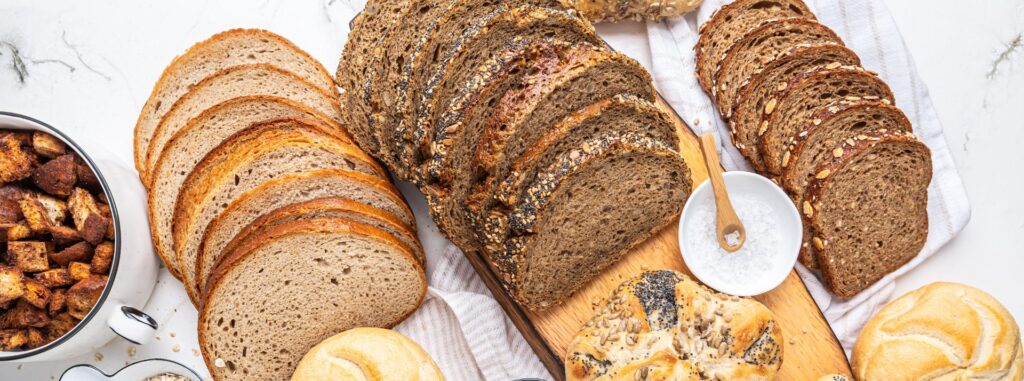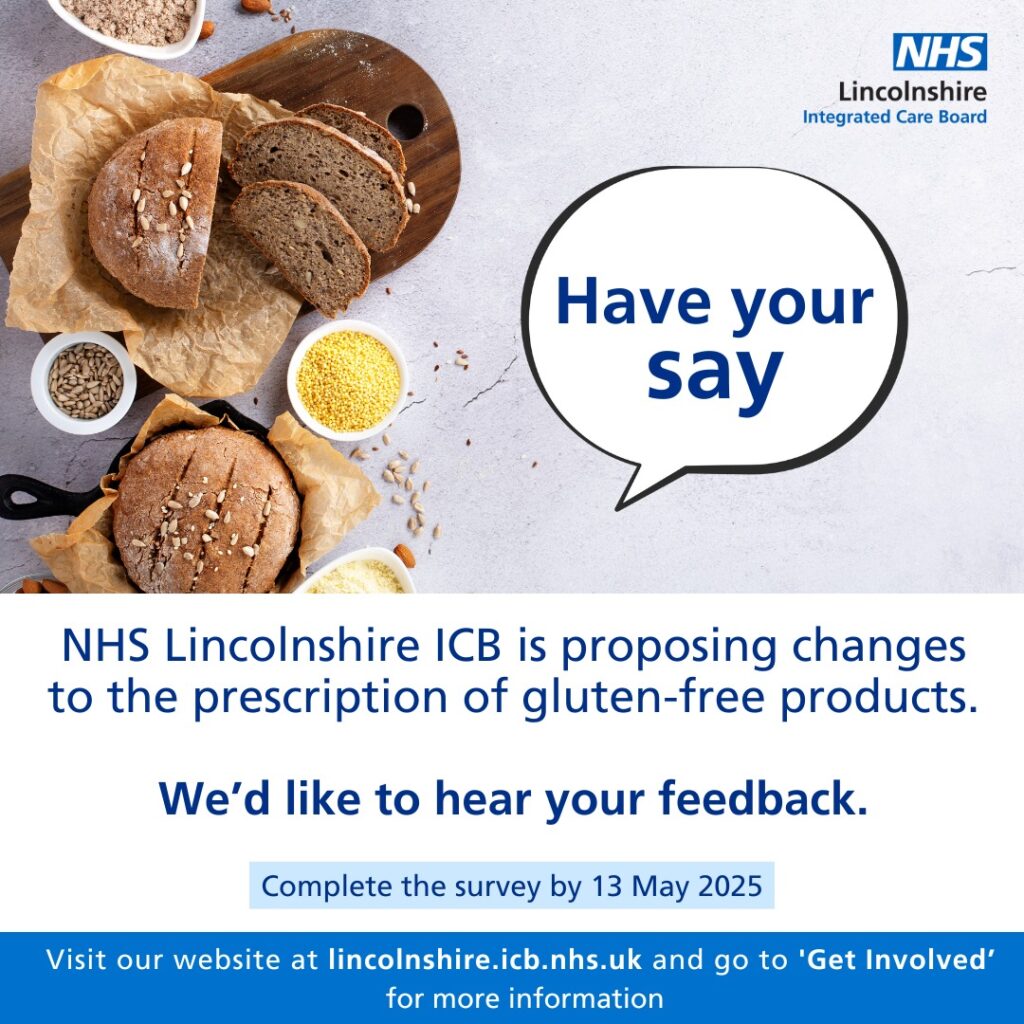Gluten Free prescription changes

Following a period of public consultation in Spring 2025, NHS Lincolnshire Integrated Care Board (ICB) has made the decision to stop prescribing gluten free products with effect from 1st August 2025.
What we set out to achieve
NHS Lincolnshire Integrated Care Board (ICB) launched a public consultation to gather views on proposed changes to the prescribing of gluten-free bread and flour. The aim was to ensure that any future policy decisions were informed by the experiences and needs of those affected, particularly people with coeliac disease or dermatitis herpetiformis.
The consultation was designed to: Raise awareness of the proposed changes. Involve stakeholders in shaping the future of gluten-free prescribing. Ensure the ICB met its statutory duties under the Health and Social Care Act 2022. Consider equality impacts and potential solutions to issues raised.
What we did

Between 18 March and 13 May 2025, we ran a county-wide consultation, reaching thousands of people through a multi-channel communications and engagement campaign.
What it involved:
- 10,000+ stakeholders received the consultation via our Engagement Bulletin.
- 6 Facebook posts reached nearly 30,000 people, generating 211 clicks to the survey.
- A dedicated webpage attracted 2,254 visitors, with traffic driven by social media, direct searches, and partner referrals.
- We worked with community groups, healthcare professionals, voluntary organisations, and condition-specific charities like Coeliac UK to ensure wide and inclusive participation.
In total, we received 428 responses, including:
- 378 individuals (mostly local residents)
- 33 healthcare professionals
- 17 organisations and community groups
- 1 written response from Coeliac UK.
What you told us
Key findings include:
Proposal to stop all prescriptions
- Overall, 73% of all respondents disagreed with the proposal to stop all prescribing, with 27% in support. Among healthcare professionals, 62% supported the proposal, while 77% of other individuals opposed it.
Key concerns include:
- High cost of gluten-free products, particularly for those on low incomes, benefits or pensions
- Health risks from non-adherence to a gluten-free diet
- Limited availability of product, especially in rural areas
- Equity concerns compared to other long-term conditions who receive free NHS prescriptions
Proposal to limit prescriptions to clearly defined groups
- 67% of all respondents opposed limiting prescriptions to specific groups, compared to 52% of healthcare professionals supporting this option.
Key concerns include:
- Age based or income-based restrictions to prescriptions seen as discriminatory to others with coeliac disease
- Risk of increased health inequalities in deprived areas, leading to poorer health outcomes
- High cost of gluten-free products, particularly for those on low incomes, benefits or pensions
Preferred Option
- 54% of other individuals preferred limiting prescriptions to specific groups over stopping entirely.
- 60% of healthcare professional preferred stopping all prescriptions with no replacement systems.
Suggestions for alternatives
Key suggestions included:
- Introducing voucher schemesas a compromise to reduce NHS costs while supporting vulnerable groups.
- Refine the prescription policy to limit prescriptions to clinically diagnosed individuals or reduce quantities.
- Work more closely with supermarkets and producersto improve affordability and availability of gluten free bread and flour.
- Calls for better dietary guidance and recipes, raise public awareness, and improve access to dietitians, with more regular check-ins with GPs and nurses about the condition.
The Coeliac Society submitted a detailed written response opposing both proposals, citing legal, clinical, and equality concerns. They advocated for maintaining current prescribing practices or exploring alternative models such as pharmacy-led services or subsidy cards.
The consultation findings will inform the final decision by NHS Lincolnshire ICB, alongside clinical, financial, and practical considerations. The ICB acknowledges the importance of addressing health inequalities and ensuring that any policy changes are equitable, evidence-based, and sensitive to the needs of affected populations.
The difference it’s made
The findings directly informed the final decision by NHS Lincolnshire ICB, ensuring that any changes are evidence-based, equitable, and clinically sound.
The prescribing of gluten-free products for patients diagnosed with coeliac disease and dermatitis herpetiformis is changing.
From 1 August 2025, patients will no longer be able to receive gluten-free food on prescription.
This change is being introduced by the NHS Lincolnshire Integrated Care Board (ICB), the organisation that buys health services locally.
Find out more
You can find out more information in the Frequently Asked Questions (FAQs) below.